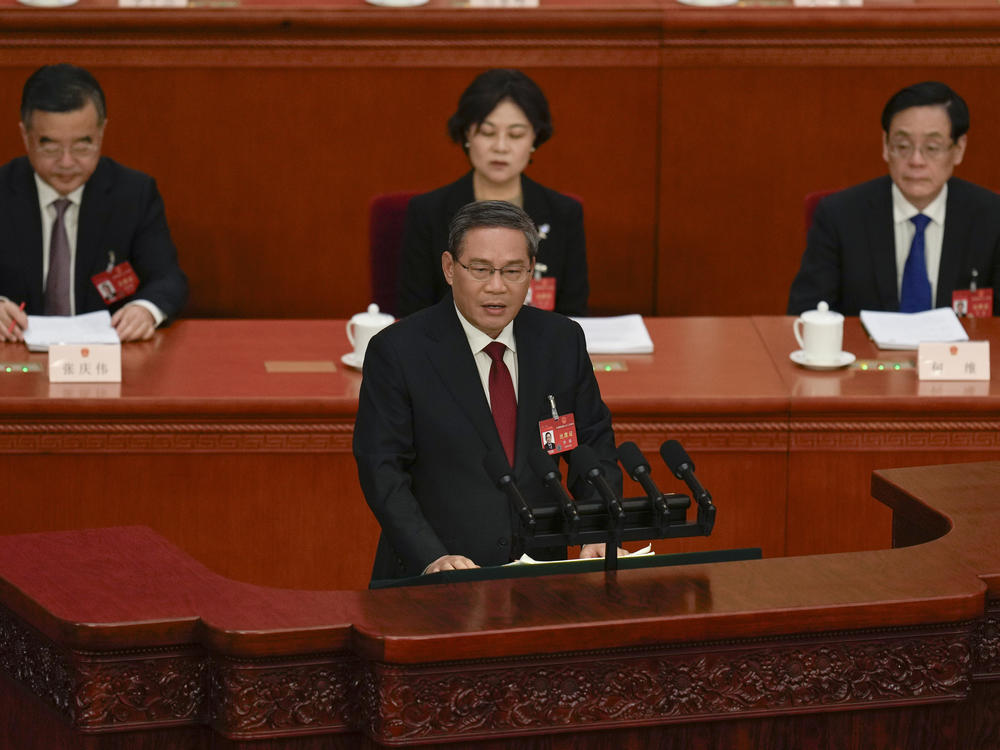Section Branding
Header Content
China's leaders announce a push to jumpstart economy, but say it won't be easy
Primary Content
China has announced a raft of measures to resuscitate a plateauing economy, even as the country's new premier warns its legions of bureaucrats to gird themselves for a period of fiscal austerity ahead.
"Governments at every level must get used to keeping their belts tightened and ensure that fiscal funds are used where they are needed most and to the best effect," said Li Qiang, China's premier, at annual legislative meetings being held in Beijing this week.
He said China is aiming for "around 5%" economic growth for this coming year, in line with previous years.
The measures come at a time when China is facing record high youth unemployment, a cratering property and consumer market, and stricter security and debt-related regulation that stymied a complete recovery from three years of COVID controls that ended in 2022.
To do so, China has set a target to create 12 million new urban jobs and keep the urban unemployment rate to 5.5%. After months of resisting any substantive financial stimulus, China will also issue 1 trillion renminbi ($139 billion) worth of "ultra-long-term special treasury bonds" to raise capital that will go toward funding shortages and advancing projects in the national interest.
The premier also said China would drop more restrictions on foreign investment into the country and "completely scrap" ceilings on foreign investment in the manufacturing sector, but did not provide more concrete details on the restrictions that would be eased. Last year, foreign direct investment into China dropped to a three year-low.
Despite slowing growth, however, China has signaled it is not backing down from a broad economic reorientation away from traditional growth sectors such as property development and internet companies, and pivoting instead to technology sectors it sees as key to its national interests, even if the shift cuts into immediate economic growth.
China's finance ministry also announced the country's defense budget would increase by 7.2% over the coming year, a jump roughly in line with previous years.
China has the world's second-largest defense budget, behind the U.S. But China has been dramatically increasing military funding and investment in new defense technologies over the past decade and analysts say that Beijing's military capabilities, especially in the digital realm and drone warfare, are formidable.
"We in governments at all levels will provide strong support to the development of national defense and the armed forces," premier Li said.
With additional reporting from Aowen Cao

